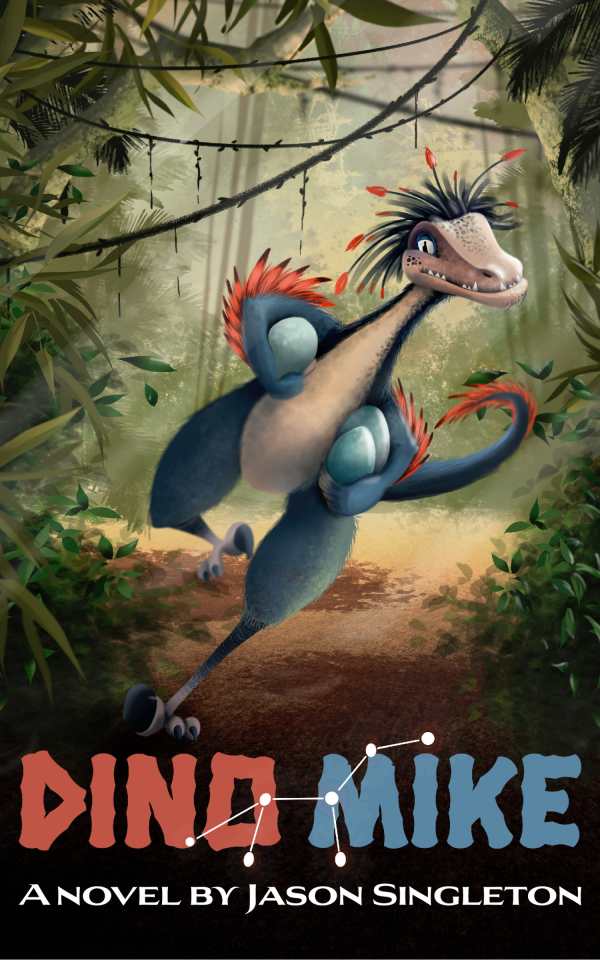
Dino Mike
In the encouraging chapter book Dino Mike, onetime mortal enemies find common ground with one another, even when forming bonds seems impossible.
In Jason Singleton’s chapter book Dino Mike, carnivorous and herbivorous dinosaurs get to know each other.
The herbivores have left the Good Lands and no one knows why. Now, the carnivores are starving. Further, while everyone in Mike’s pack is an excellent hunter, Mike can’t seem to do anything right; Shank, another pack member, wants him gone. After becoming an uncle to twin girls and seeing the impact that starvation is having on them, Mike makes it his mission to locate the herbivores and convince them to return to the Good Lands to meet their fate.
When the story begins, Dino Mike is known to others as just Mike; he’s regarded as a misfit within his pack who’s tasked with babysitting the twins’ eggs. He nicknames himself to feel special at a time when he feels most useless. He is bullied by both herbivores and carnivores; his own battle for survival is thus multifaceted.
Later, when he meets Groober, an herbivore, he uses his nickname to introduce himself. But Groober refuses to use this nickname; instead, he makes it clear that he and Dino Mike are not friends though his use of the formal “Mr. Deinonychus.” And as events unfold, Groober returns to this usage to clarify this division. “You can’t have your friends and eat them too” is his—and the story’s—main point.
Indeed, there’s a dark undertone to the book’s character dynamics and divisions. Both the carnivores and the herbivores are fighting for survival, and some of these fights are rendered in visceral terms, including with depictions of death. There is bloodshed on both sides, and one group’s survival seems dependent on the other’s destruction. It’s clear that it will take extraordinary creativity to manifest a resolution that works for all. Triumph arrives when an unexpected solution is proposed for the two factions.
While the prose is, in general, representative of the vernacular, it includes some scientific terms, as with dinosaur names (like Heterodontosaurus), and some outdated expressions, like “doofus.” Anachronisms also lead to distractions and confused worldbuilding, as with a dinosaur reference to a Nerf ball. And the repeated use of “dung” in the place of profanities is somewhat extraneous to the storytelling.
In the chapter book Dino Mike, onetime mortal enemies find common ground with one another, even when forming bonds seems impossible.
Reviewed by
Debbie McCarthy
Disclosure: This article is not an endorsement, but a review. The publisher of this book provided free copies of the book and paid a small fee to have their book reviewed by a professional reviewer. Foreword Reviews and Clarion Reviews make no guarantee that the publisher will receive a positive review. Foreword Magazine, Inc. is disclosing this in accordance with the Federal Trade Commission’s 16 CFR, Part 255.
